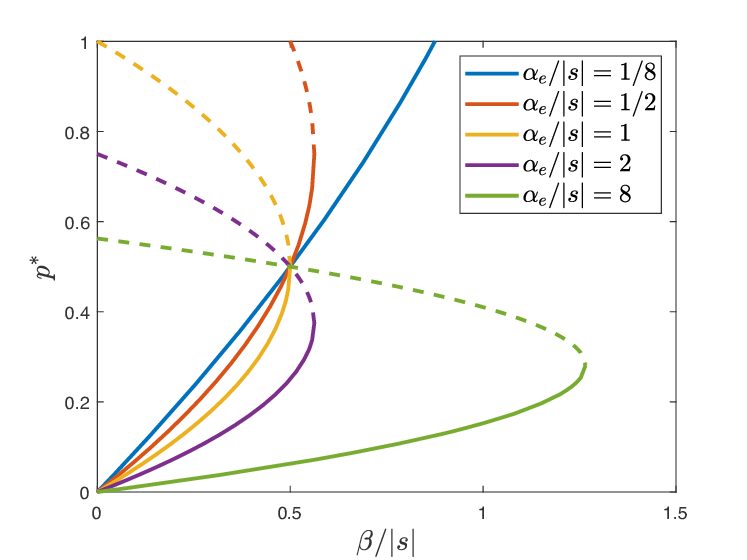Sergey Gavrilets and I have a new paper published in the Proceedings of the National Academy of Sciences. You can find it here.
Abstract:
People and cultures differ in the extent to which they view the world as a zero-sum environment (where one person’s gain is another’s loss) or a positive-sum environment (where certain actions can benefit everyone). These beliefs shape individuals’ willingness to work, invest, collaborate, or show hostility toward out-groups, and accept or reject various social policies. We model dyadic interactions in a heterogeneous population where individuals biased toward a zero-sum worldview are more likely to invest in competition, while those biased toward a positive-sum worldview are more likely to invest in cooperation. The environment alternates stochastically between cooperative and competitive states. Without social influence, the more accurate worldview yields higher utilities and spreads throughout the population. However, assortative matching by bias can favor the positive-sum worldview even if a positive-sum environment is somewhat less likely. With peer conformity, inaccurate worldviews can persist after a structural change in the environment, leading to cultural evolutionary mismatch. In the presence of cultural authorities who can alter beliefs, either both worldviews can coexist or one excludes the other. Moreover, when assortative matching and conformity interact, authorities may profit by amplifying individuals’ biases, creating enclaves of similarly biased people who can pay the authorities enough to make investment in persuasive technology economically viable. Cultural evolutionary mismatch is more likely in cultures marked by strong peer conformity and high responsiveness to authority when the authority promotes a suboptimal worldview. This study demonstrates how real-world conditions, peer influence, and authority interventions can perpetuate or shift zero-sum and positive-sum worldviews-at times leading to inaccurate beliefs.

